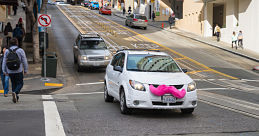 Uber and Lyft have become two of the most popular side hustles and even full-time jobs across the country. At first glance, these positions sound like a great deal. You can set your own hours, you can work as much or as little as you want, you don’t have to answer to anyone, and the pay grade is above average. However, it’s not as straightforward as it seems. Before you sign up, here are some things you should know about the rideshare business.
Uber and Lyft have become two of the most popular side hustles and even full-time jobs across the country. At first glance, these positions sound like a great deal. You can set your own hours, you can work as much or as little as you want, you don’t have to answer to anyone, and the pay grade is above average. However, it’s not as straightforward as it seems. Before you sign up, here are some things you should know about the rideshare business.
Taxes
One of the hardest things for rideshare drivers to grasp is taxes. Unlike most positions, with this job you’re an independent contractor, meaning you’re responsible for taking all the taxes out of your paycheck. You can find many helpful calculators online, but understanding what’s being taken out may help you as well.
First off, you’ll have to make at least $600 before you have to file taxes. Then, you need to estimate how much you think you’ll make on an annual basis. Don’t worry if you can’t figure an exact dollar figure. You can adjust it as you go. Once you figure how much you think you’ll make, find your tax bracket, which will more than likely hover between 10 percent and 28 percent. Next, add in the 15.3 percent self-employment tax that’s levied on all independent contractors. The final taxes are any state or local income taxes you may owe.
When you add these percentages up, you may be looking at taxes somewhere in the realm of 25 to 50 percent. You can use the standard mileage deduction to decrease your taxable income, and you may also have other expenses such as car washes or interior cleanings, but you may find that the taxes make it much less lucrative than you may have thought.
Insurance Considerations
Most personal auto insurance doesn’t cover you if you’re a rideshare driver, and if you’re involved in an accident while on the job, it’s likely that your insurance company will fight you tooth and nail. If you’re on the job, both Uber and Lyft have driver insurance, but their policies aren’t always transparent.
Fortunately, many car insurance companies are now offering rideshare driver insurance. This protects you while you’re on the job from liability, theft from passengers, or collision. However, these policies aren’t available in all states. If your state doesn’t have one, you’ll need a commercial auto policy for complete coverage.
The Passengers
Knowing how to handle passengers is one of the most important aspects of rideshare driving. For example, morning commuters need to make it to work in a hurry, so being prompt is a key aspect. In addition, these people may not want to chat with you, and reading their body language is always required.
You may also want to pick and choose your driving time. If you can’t stand late-night partiers or the chance of a vomiting episode, you may want to pick a time with tamer, more well-behaved passengers.
Now that you know the ins and outs of the rideshare business, you can make an informed decision on whether the business is for you.
This photo, “Lyft,” by urbanists, used under CC BY 2.o. “urbanists” is licensed under CC BY 2.0 by Gay Family Kia.


 Warranties include 10-year/100,000-mile powertrain and 5-year/60,000-mile basic. All warranties and roadside assistance are limited. See retailer for warranty details.
Warranties include 10-year/100,000-mile powertrain and 5-year/60,000-mile basic. All warranties and roadside assistance are limited. See retailer for warranty details.